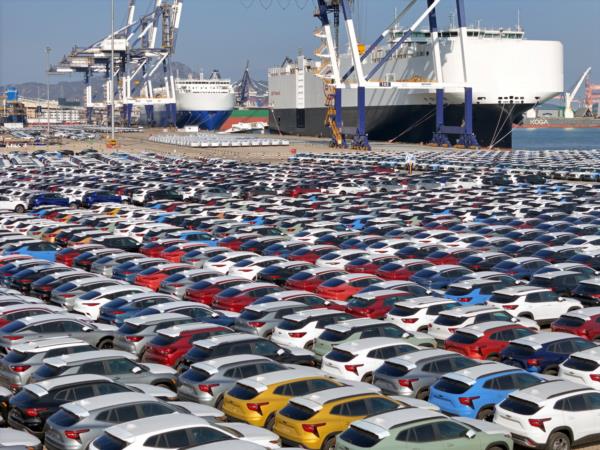
China, the world's largest automobile market, is stepping up its efforts to bolster its New Energy Vehicle (NEV) industry in response to foreign trade restrictions. With the aim of reducing dependency on traditional fossil fuel vehicles and promoting environmental sustainability, the Chinese government has been actively supporting the development and production of NEVs. Now, faced with challenges posed by trade restrictions from other countries, China is taking proactive measures to ensure the continued growth of its NEV industry.
Foreign trade restrictions, particularly those implemented by the United States, have created obstacles for Chinese NEV producers. These measures have included tariffs and other trade barriers, making it more difficult for Chinese companies to export their NEVs and expand their market share globally. In response, the Chinese government is adopting a multi-faceted approach to support the domestic NEV industry and mitigate the impact of these trade restrictions.
Firstly, China is investing heavily in research and development, aiming to enhance the technological capabilities of its NEV manufacturers. By encouraging innovation and technological advancements, the government aims to create a more competitive NEV industry that can withstand foreign trade restrictions. Through financial incentives, tax breaks, and research grants, the Chinese government is providing substantial support to companies engaged in NEV research and development, which in turn will help enhance their products and increase their global competitiveness.
Moreover, the Chinese government has implemented policies to stimulate the domestic demand for NEVs, reducing reliance on exports. These policies include subsidies, tax exemptions, and other incentives to encourage consumers to purchase NEVs. By increasing domestic demand, China hopes to create a larger market for its NEV industry, which can help offset the impact of foreign trade restrictions.
In addition to supporting technological development and domestic demand, China is also strengthening its international collaborations in the NEV sector. The Chinese government aims to foster partnerships and cooperation with other countries to share knowledge, expertise, and resources in NEV production. By working together with foreign companies and governments, China can expand its influence in the global NEV market despite trade restrictions, and also learn from international best practices to further improve its own industry.
China's commitment to the NEV industry is reflected in its long-term vision and policies. The country has set ambitious goals for NEV adoption, including a target of having NEVs account for a significant percentage of total vehicle sales by 2025. By maintaining this focus on sustainable transportation and actively supporting its NEV industry, China aims to solidify its leading position in the global automobile market.
As the NEV industry continues to evolve and face new challenges, China remains determined to overcome foreign trade restrictions and ensure the growth and success of its NEV industry. With its comprehensive approach that emphasizes technology, domestic demand, and international collaboration, China is fostering a robust NEV industry that can respond effectively to trade barriers. As a result, China's NEV sector is poised to continue its upward trajectory, driving the country towards a cleaner and more sustainable transportation future.







